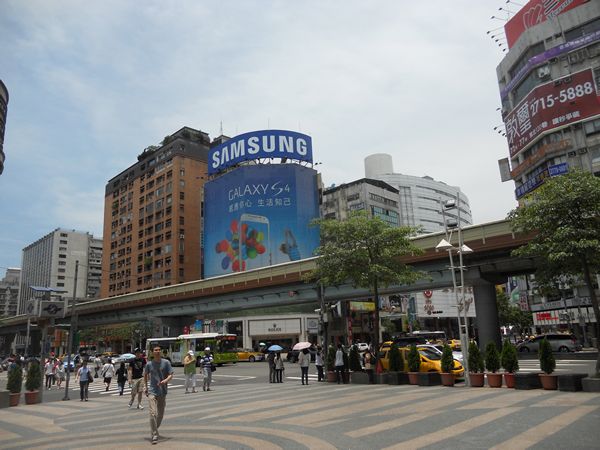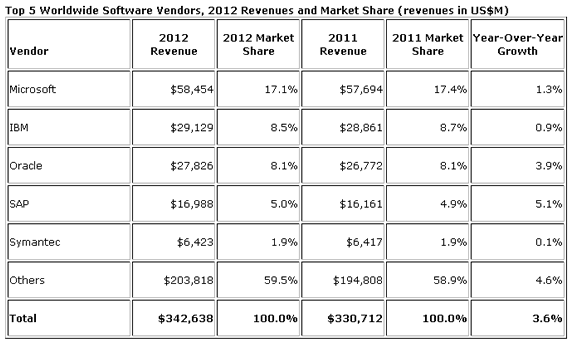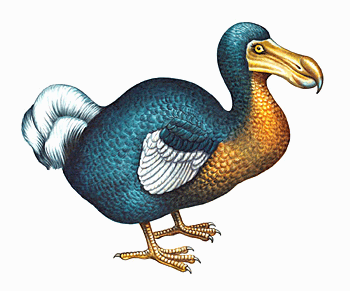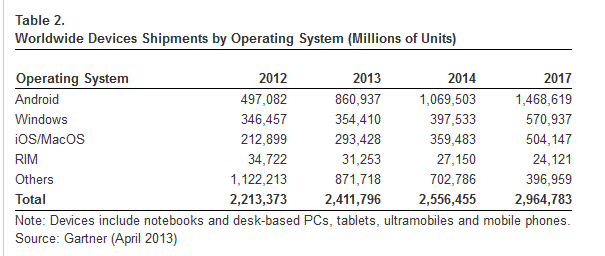 An interview with AMD last week shed light on the latest battleground between Intel and AMD which underlies future changes in computing. In a meeting with corporate vice president for global channel sales, Roy Taylor, he said both AMD and Intel are investing in microprocessor architectures which give equal prominence to both serial and parallel computing. And he claimed AMD is ahead of the game.
An interview with AMD last week shed light on the latest battleground between Intel and AMD which underlies future changes in computing. In a meeting with corporate vice president for global channel sales, Roy Taylor, he said both AMD and Intel are investing in microprocessor architectures which give equal prominence to both serial and parallel computing. And he claimed AMD is ahead of the game.
Using both the CPU as a serial processor and the GPU as a parallel or GPGPU (General Purpose GPU) processor these new devices form a category that AMD calls the APU. The APU will be the bedrock of a new generation of x86 based HSA or Heterogeneous System Architecture devices. Current generation APUs such as Sandy Bridge, Ivy Bridge and the forthcoming Haswell parts from Intel, and AMD’s Trinity and Richland parts from AMD still use separate memory configurations, with each processor having its own defined memory block.
But future devices in 2014, said Taylor, will use single memory configurations, allowing both the CPU and GPU to dynamically share a single memory array and be true HSA enabled processors. Intel’s introduction of an L4 cache to speed up the performance between its CPU and GPU is also an indication of its intentions.
In defense of his argument for APU as a new microprocessor category, Taylor showed a diagram that illustrated the increasing commitment by Intel to a larger GPU configuration in its APU generations. These indicated, he said, the need for successful HSA architectures to be balanced.
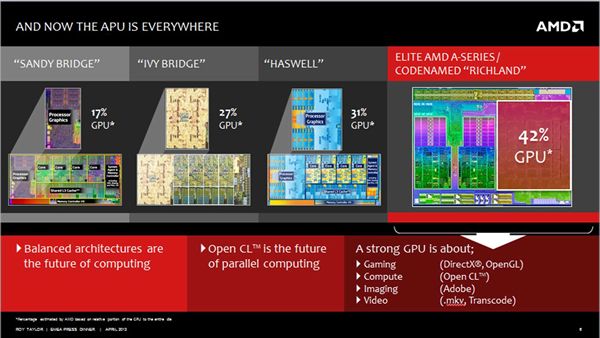
APUs and Open CL
The growth and success of Open CL, which is able to take advantage of APU devices by using the GPU to accelerate parallel functions, is further ammunition to the establishment of the category, said Taylor. Popular applications such as Handbrake for transcoding, and VLC Player for watching movies, take advantage of this open standard maintained by Khronos and supported by AMD, Apple, IBM, Intel and Nvidia. Open CL received a strong endorsement last week by the announcement by Adobe that it is using Open CL to hardware accelerate its Premier Pro product.
Since HTML5 also takes advantage of GPU acceleration it seems to make sense that in the future we will see APUs used wherever there is a need for a device which can replace the traditional but separate PC configuration of having a separate CPU and GPU. “That configuration makes sense for higher end systems’”, said Taylor. But in the meantime currently available APU performance is surprisingly strong, he said. To this end he went on to show the performance of AMD current APUs compared to Intel’s or configurations using both Intel and a separate Nvidia GPU together.
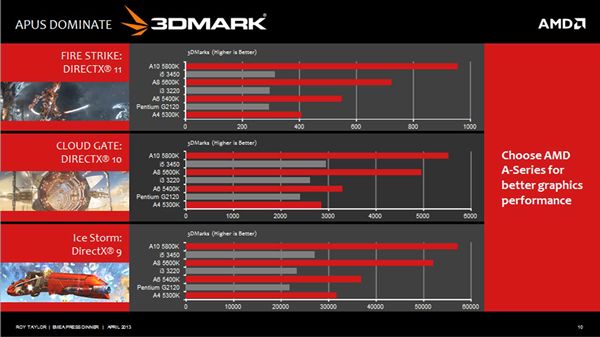
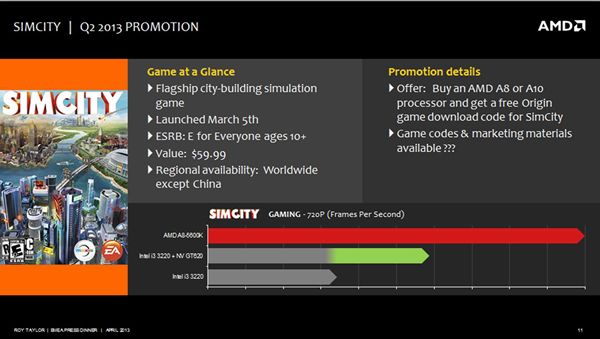
When asked what this meant for the channel, Taylor said that at a time of austerity, being able to build relatively high performance desktop and notebook computers at a fraction of their traditional prices could have a huge impact. He may be right but only if system builders and e-tailers recognise the value of the new category and get behind it.
A quick read of the HSA Foundation website seems to show a significant ground swell behind the use of balanced compute architectures. With companies like Qualcomm, ARM, Imagination Technologies and Samsung also investing in HSA it does seem that we can expect to see strong developments in this area. It will be interesting to see what Microsoft thinks of the use of APUs to power Windows and whether the software community in general gets behind the category too.
We contacted Intel in Santa Clara for comment but at the time of press had not received a response.
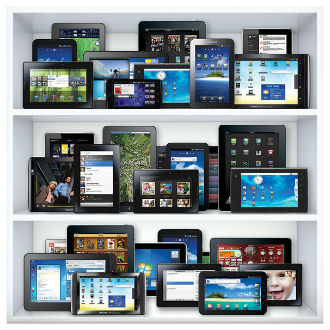 A Gartner report says that worldwide shipments of PCs fell in all regions during the second quarter of this year – a fall of 10.9 percent and the fifth consecutive decline.
A Gartner report says that worldwide shipments of PCs fell in all regions during the second quarter of this year – a fall of 10.9 percent and the fifth consecutive decline.
